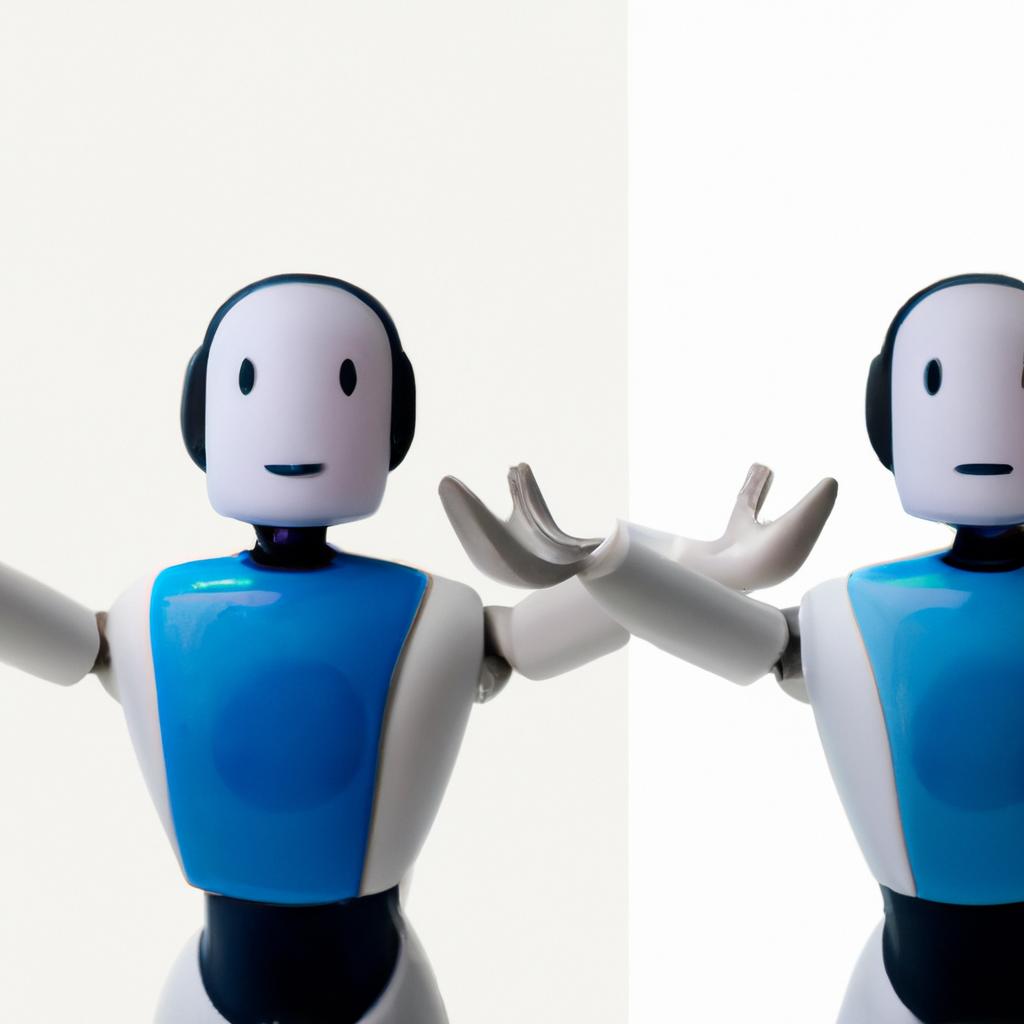Introduction: AI and Customer Service
AI, or Artificial Intelligence, is the process of using computer programs and systems to perform tasks that would normally require human intelligence. It is used in a wide range of industries from finance to healthcare, and it has become increasingly popular in customer service. Customer Service is defined as the process of taking care of the customer’s needs by providing and delivering professional, helpful, high-quality service and assistance before, during and after the customer’s original purchase.
Customer service is extremely important in today’s digital world. Customers not only expect prompt and efficient service but also an enjoyable and pleasant experience. Companies who fail to provide the necessary customer service often find themselves in a difficult position, as customers are more likely to leave unsatisfied which can have dire consequences for a business.
AI has become an invaluable tool in customer service, automating many tasks which were once labour intensive for companies, reducing costs and engaging customers in innovative ways. However, there are still some drawbacks to incorporating AI in customer service which must be considered. In this guide, we will explore the pros and cons of AI in customer service, how AI can help increase customer loyalty and engagement strategies as well as potential applications for customer service.
Pros of AI in Customer Service
AI provides plenty of advantages for customer service. Automation eliminates tedious processes, freeing up more time for staff to focus on the tasks that require their skill and expertise. AI can also reduce costs, as machines are more efficient than humans and don’t require wages or benefits. Furthermore, AI gives businesses access to customer data which can be used to better understand customer needs and drive personalised engagement strategies.
Cons of AI in Customer Service
AI has had its fair share of drawbacks in customer service, especially when it comes to personal interactions. Let’s take a closer look at some of the cons associated with incorporating AI into customer service:
- Possible impersonal interactions – AI can lack the personal touch that a human customer service agent provides, leading to a less than satisfactory experience for the customer.
- Job losses – The introduction of AI in customer service may result in job losses, as fewer agents are required to handle requests.
AI and Engagement Strategies
Artificial Intelligence (AI) enabled services are being increasingly used to streamline customer experiences and offer seamless, automated engagement. AI applications are utilized for customer service across a range of industries, from hospitality to finance. It has been proven to provide cost-effective and efficient customer service.
With AI, customer service teams can be more proactive in responding to customer queries. AI technology such as chatbots and virtual agents can be used to answer customer inquiries quickly, saving precious time for customer service teams. AI can also identify customer trends and analyze customer data to recommend personalized products or services.
By leveraging AI technology, customer service departments can improve processes and automate workflows, helping teams manage complex customer interactions and respond to customer needs faster. Additionally, AI can provide insights into customer behavior, allowing customer service teams to anticipate customer questions and develop more effective customer engagement strategies.
How AI can Help Increase Customer Loyalty
Artificial Intelligence can help increase customer loyalty by providing customers with personalized experiences. AI technologies can gather and analyze data to help businesses better understand their customers’ needs and preferences. This helps businesses tailor offers and services to meet the needs of their customers, leading to greater customer satisfaction and loyalty.
AI also helps automate processes, which allows businesses to quickly respond to customer inquiries and provide personalized support. AI-powered chatbots can provide prompt and efficient customer service without any human intervention, which can improve customer satisfaction and loyalty.
Using AI to personalize the customer experience is becoming increasingly important in the competitive business landscape. It has the potential to uncover customer insights and engage them with targeted content and offers that can keep them coming back.
Artificial Intelligence for Customer Service: Chatbots, Virtual Agents, and Automated Workflows
The use of Artificial Intelligence (AI) in customer service is becoming increasingly popular and has the potential to revolutionize how we interact with our customers. AI technologies such as chatbots, virtual agents, and automated workflows can help companies provide a smoother and more personalized customer experience, leading to increased engagement and loyalty.
Chatbots are computer programs that simulate conversations with customers. By using natural language processing (NLP), they are able to understand and respond to customer inquiries quickly and accurately. They can also facilitate tasks such as purchase orders, account setups, and delivery tracking.
Virtual agents are similar to chatbots but have more advanced capabilities. They can utilize machine learning to interpret customer queries, then offer solutions based on their knowledge of the customer’s requirements. They can even provide recommendations based on past customer interaction data.
Automated workflows are software programs that can automate repetitive customer service tasks. By automating these tasks, businesses can reduce costs and build stronger relationships with their customers. Such workflows can streamline everything from customer onboarding to order fulfillment.
The Potential of AI in Customer Service
AI technologies are being rapidly adopted in customer service as organizations strive to provide faster and more efficient customer experiences. In the near future, AI promises to unlock new opportunities for customer service teams, while also presenting challenges that must be addressed.
AI-driven technologies can provide valuable insights into customer behaviors and interactions. This data can be used to identify potential issues or opportunities and map customer journeys. AI also allows companies to quickly respond to customer inquiries and inquiries in real-time, with automated responses and proactive solutions.
Customer service teams can also leverage AI-driven automation to streamline mundane, repetitive tasks, freeing up time to focus on more complex tasks. Automation can improve efficiency and ensure that customers receive timely and accurate responses.
AI-driven technologies can also help companies build more personalized customer experiences. By leveraging customer data and individual preferences, AI-enabled services can offer tailored solutions and recommendations, helping to build strong customer relationships.
On the other hand, when introducing AI technologies to customer service, companies must also be aware of the potential risks. AI systems can easily become impersonal and fail to understand customers’ emotions or nuanced requests, resulting in customer dissatisfaction. Organizations must also consider the impact AI may have on job roles, as some manual-labor intensive tasks may no longer require a human employee.
In conclusion, while there are potential risks involved, the advantages of AI in customer service far outweigh the cons. With proper implementation of AI-driven technologies, customer service teams can take advantage of the many opportunities to increase customer loyalty and satisfaction.
Reasons why AI is here to Stay in Customer Service
Customer service is an integral part of any business and organizations are increasingly turning to Artificial Intelligence (AI) to enhance customer service. This technology is here to stay because of the proven results it has delivered and the growing demand for a more streamlined customer experience.
AI for customer service has been met with both positive and negative reviews, but its potential is undeniable. As such, organizations can no longer ignore this technology as companies around the world embrace AI-enabled solutions.
The following are some reasons why AI is here to stay in customer service:
- Proven Results: AI used in customer service has demonstrated tangible results; for example, reducing the time taken to handle customer inquiries by up to 40%. AI also offers insights into customer preferences and behaviors as well as predictive analytics that help organizations understand customer needs better.
- Growing Demand: The demand for AI-enabled customer service solutions is on the rise as customers become increasingly reliant on technology. Customers expect companies to invest in emerging technologies, such as AI, to keep up with their demands and improve customer service.
Top 10 Tools and Technology for Enhancing Customer Service
In an increasingly competitive market, the customer is at the heart of any business. With the right tools and technologies, companies can provide their customers with an enhanced customer service experience that keeps them coming back while enabling the business to stay ahead of the competition. Here are the top 10 tools and technologies for enhancing customer service:
- Chatbots – Chatbots automate customer service conversations, providing customers with instant answers to their questions 24/7. Chatbots can reduce customer service staff operating costs, freeing up resources to focus on more complex inquiries.
- Virtual Agents – Virtual agents use natural language processing to understand customer queries, enabling them to accurately resolve customer issues in a fraction of the time it would take a human agent.
- Automated Workflows – Automated workflows allow you to streamline support processes and ensure that customer requests are handled quickly and efficiently.
- CRM Systems – CRM systems provide customer service teams with a centralized view of customers’ history, enabling them to better understand each customer’s individual needs.
- Live Chat – Live chat provides customers with the option to chat with an agent in real-time to quickly resolve their issues with minimal fuss.
- Knowledge Management Systems – Knowledge management systems provide customer service teams with access to an organized library of information, allowing them to quickly respond to customer inquiries without having to search for answers.
- Social Media Integration – Social media integration allows customer service teams to quickly respond to customer inquiries and leverage user generated content to improve their service.
- Email Automation – Email automation enables businesses to send automated emails based on customer behaviour and buying habits, enabling personalized customer experiences.
- Mobile Apps – Mobile apps make it easier for customers to get in touch with your customer service team, reducing wait times and improving customer satisfaction.
- AI-Powered Services – AI-powered services enable customer service teams to predict customer inquiries and automate processes, making it easier and faster to resolve customer issues.
These tools and technologies enable businesses to enhance customer service in ways previously thought impossible. AI-powered services, for instance, allow companies to leverage machine learning and predictive analytics to provide customers with accurate, timely responses to their inquiries. By providing customers with an enhanced customer service experience, businesses can dramatically increase customer loyalty, boost sales, and gain a competitive edge over the competition.
comments: 0











